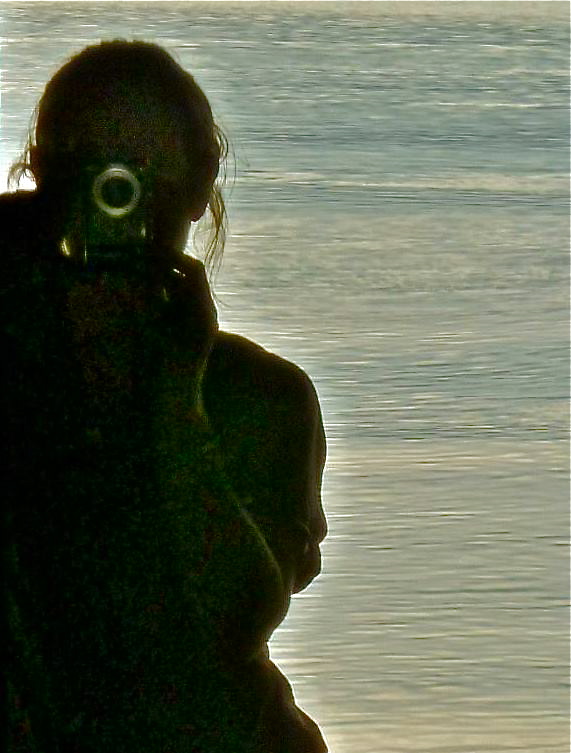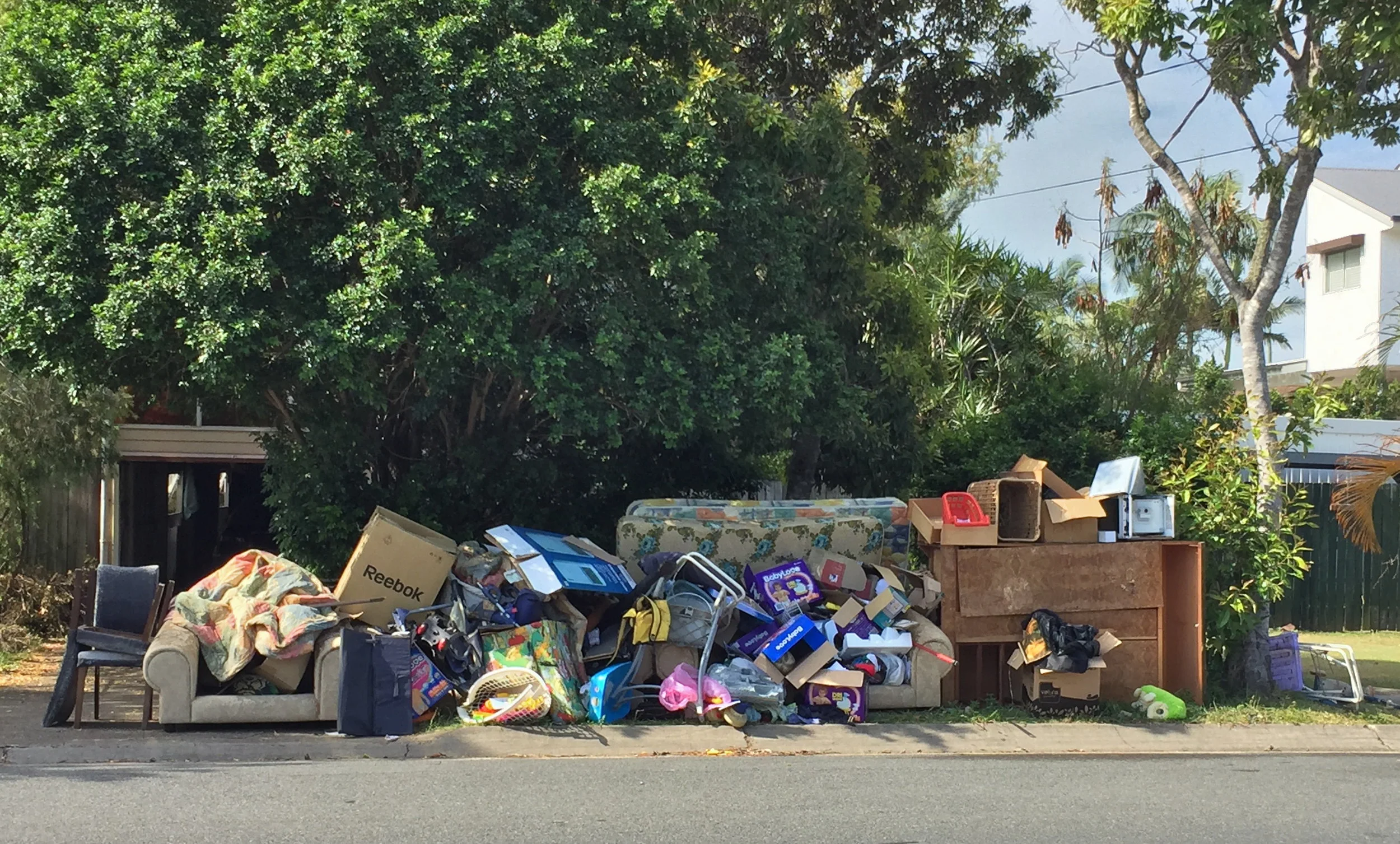We need to talk about last week
Killing the Koala and Poisoning the Prairie was not a good book to be reading when the unthinkable happened in the US last week. The book's authors are Professor Corey Bradshaw, who is the Sir Hubert Wilkins Chair of Climate Change in the School of Biological Sciences at the University of Adelaide, and Paul Ehrlich, biologist and Bing Professor of Population Studies at Stanford University in California. The two scientists met in 2009, became good mates of like mind, and decided to compare their countries' responses to the planet's environmental challenges.
I put my book aside to attend a friend's birthday lunch on Wednesday 9/11. Even by midday in Queensland, an hour behind the rest of east coast Australia, there were disconcerting signs in the US election coverage being relayed in the restaurant. I didn't want to watch, but I couldn't help myself. I'd been there, you see, in the UK in June, when a sizeable chunk of the population – but not a majority – finally spat their dummies out about rich elites getting richer while governments failed to attend to the 99-percenters' basic needs. In the UK, they voted to take the country out of the European Union, where it had been for 42 years. Barely five months later, here was a re-run of the unthinkable and unacceptable playing out. I was not great company: I apologise to Ann.
Factionalism and splinterism are unlikely to produce solutions to the planet's greatest problems. Trump's success, unlikely or not, underlines what American writer and editor Tom Engelhardt describes (here) as 'the rise of rightwing nationalist movements and the further fragmentation of this planet of increasing disorder'.
The number of people on earth has doubled since Paul Ehrlich published The Population Bomb in 1968, and the topic remains at the critical heart of his latest, collaborative work. He and Cory Bradshaw juxtapose their geographically large, democratic unions, and examine how each of them is, or should be, rising to the greatest global challenges. Whether or not you put climate disruption at the top of the list, or the concentration of wealth and power in the hands of denialist plutocrats, the degradation of environments, the loss of biowealth, the toxification of the planet, the threats to human health, or the transition to clean energy, Ehrlich's and Bradshaw's conclusions are daunting. And the world has just veered further away from the peaceful, equitable and co-operative path to planetary sustainability they rightly claim is imperative.
What Earth's citizens did not need was the election of an American President whose priority tasks include the extrication of the US from the Paris climate agreement, which came into force four days before his election. Anyone who, like me, has shivered in fear in recent months for the survival of this nascent international climate policy if Donald Trump were to reach the White House, is beginning to live their worst-case scenario. How much more are climate researchers wringing their hands this week than last?
The contrast between Barack Obama and Donald Trump could not be starker. Or bleaker. Obama did not do enough to outdate fossil fuels, but at least he had a Clean Power Plan, which Trump has already declared 'illegal'. On the campaign trail in West Virginia, a state with a long history of coal mining, the orange one donned a miner's helmet and declared that the 'war on coal' was over, promising jobs to revive the industry. In Pennsylvania he held aloft a placard that read 'Trump digs coal'. He won in both states: in fact, Pennsylvania's 20 electoral college votes took him beyond the 270 he needed to win the presidency, when once it had been widely assumed those votes had Hillary Clinton's name on them.
The Australians are busy working out the implications of Trump's win for their own country. I haven't heard anyone suggest this, but there must be factions of the Turnbull government who are thinking that they're off the hook a bit as they defend their indefensible record of stifling renewables and promoting massive fossil fuel development in Queensland's Galilee Basin, ostensibly in the name of jobs but, secretly, to reward their fat-cat funders. Australia's embarrassing tail-end-Charlie position on the list of rich nations' efforts to attain their carbon reduction targets will surely improve once Trump and his cronies tear into environmental legislation in the US.
It will be interesting to watch both the UK and Australia, with their Tory governments who normally talk up their special relationship with the US, dance around the issue once there's a loony loose in the Oval Office.
There's so much American in everyday life in Australia, it's not hard to see why there is so much debate about the election outcome. Australians deny their country resembles the United States and get upset if you dare suggest such a thing. I think it's more obvious to an outsider. Many kids' manner of speaking, for example, combines the Aussie high-rising terminal – or upward inflexion, if you prefer – with American intonation, which tends to make them sound precocious. And we have garbage and eggplant and freeways and sneakers and movies and chips (crisps) and fries (chips) and train stations and normalcy and take-outs and shopping carts and zucchini and scripts (prescriptions) and high schools and proms and real estate and mail boxes and lines (queues)… the list is endless.
The only thing that dragged me back from the edge of a pit of despair last Wednesday was a family of remarkable Tawny Frogmouths who had taken up residence briefly in a Poinciana outside our house. I was surprised at their choice of tree, since it afforded insufficient shade on these already hot days, and the chicks at times had to pant and spread their wings to cool off. But they were perfectly camouflaged: even lichen-like splodges are part of the design. Their expressions made me laugh in the darkness, and their calm repose as they melted into branches reminded me of the inner peace gleaned from a lookout over plains and mountains, an enfolding forest, or the beautiful and inconstant shoreline at nature's most dramatic boundary.
Talking of camo, Wayne Swan, former Deputy PM and Treasurer, has today called out the overly powerful and overpaid corporate and financial elites in Australia. Beware their selfishness and greed, he warns, masquerading as a growth agenda for everyone.
So, is there a Trump lurking in the wings in Australia? South Australian senator and right-wing religious nut Cory Bernardi threatens to form a breakaway wing of the Liberal Party – that is, further right. I wonder what he thinks of America's 'Alt-Right'. He must have fraternised with them on his Tea Party reconnaissance trips to the States. And then there is the equally unappealing One Nation party leader Pauline Hanson. I wasn't in Australia for her previous hate-driven incarnations: hopefully will be the last, but she is capable of further nastiness before her day is done.
I haven't even mentioned the most odious aspects of Trump's campaign and, with the appointment of Steve Bannon as chief strategist in the White House, plans for his presidency. Read this for a foretaste of the reign of the deplorables, not forgetting the racism; religious bigotry; immigration restrictions and threats of repatriation; threats to LGBT and reproductive rights; trade wars; lack of gun controls; potential international isolationism; and, of course, misogyny.
It baffles me that 53 per cent of white women who went to the polls, voted for Trump. OK, so let's assume a significant number of those did as their husbands told them, or else. That still means large numbers chose to forget about, or condone, the derogatory way in which he has often described women; the alleged assaults; his pussy-grabbing exploits; the objectification of women in his past career; and the threat to abortion rights and free contraception now he is to be President. If I were a female voter among the 47 per cent, I would fear for my country over the next four years.
Throughout Hillary's campaign I was concerned that, should she win, she would experience what Julia Gillard, Australia's one and only female Prime Minister, had to endure. It was misogyny of the most unsavoury and disrespectful kind, largely unreported by mainstream media. Before she was elected, I wondered if Aussie blokes were ready for a female head of state, and many of them were not. It may well be that all those male Trump voters in the Rust Belt were voting for change after decades of neglect, but I ask the same question, especially as Trump was delivered in white supremacist packaging. Sexism is deeply ingrained in our society, and much as I would like to believe otherwise, I cannot.
So, I have added my bit to the worldwide musings on – again I borrow Engelhardt's words – 'a presidential candidate, and now president-elect, so bizarre that, despite the billions of words expended on him, he remains a phenomenon beyond understanding'. Everyone will be feeling their way in the world post 8 November 2016, but there can be little doubt we are living in the time of crazy.



